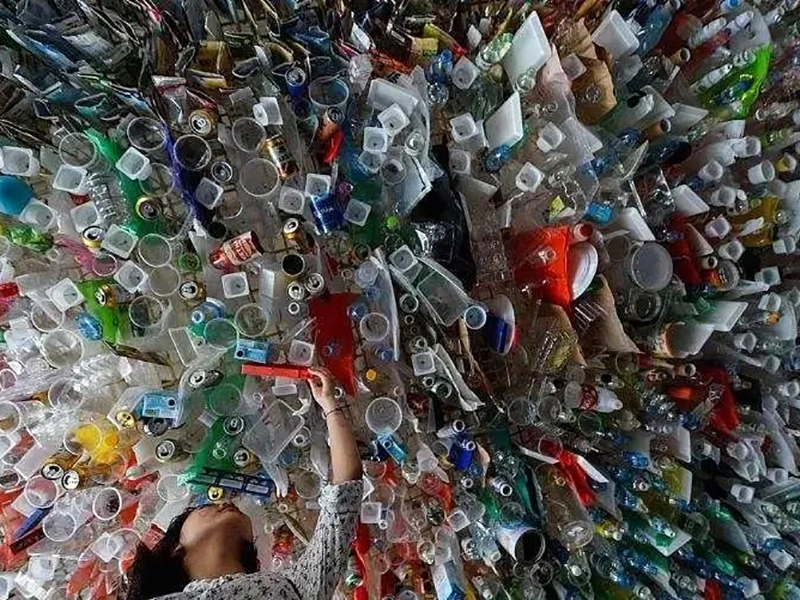After receiving the five empty plastic bottles handed by the boy in turn, the staff put a cute ceramic animal into the boy’s palm, and the boy who received the gift smiled sweetly in his mother’s arms. This scene took place in the streets of Hoi An, a tourist destination in Vietnam. Local recently held a “plastic waste for souvenirs” environmental protection activities, a few empty plastic bottles can be exchanged for a ceramic handicrafts. Nguyen Tran Phuong, the organizer of the event, said he hopes to raise awareness of the plastic waste problem through this activity.

According to the Ministry of Natural Resources and Environment, Vietnam produces 1.8 million tons of plastic waste each year, accounting for 12 percent of total solid waste. In Hanoi and Ho Chi Minh City, an average of about 80 tons of plastic waste is produced every day, causing a serious impact on the local environment.
Starting from 2019, Vietnam has launched a nationwide campaign to limit plastic waste. To raise people’s awareness of environmental protection, many places in Vietnam have launched distinctive activities. Ho Chi Minh City also launched the “Plastic Waste for Rice” program, where citizens can exchange plastic waste for rice of the same weight, up to 10 kilograms of rice per person.
In July 2021, Vietnam adopted a program to strengthen plastic waste management, aiming to use 100% biodegradable bags in shopping centers and supermarkets by 2025, and all scenic spots, hotels and restaurants will no longer use non-biodegradable plastic bags and plastic products. To achieve this goal, Vietnam plans to encourage people to bring their own toiletries and cutlery, etc., while setting a transition period to replace single-use plastic products, hotels can charge a fee for customers who really need them, in order to play a role in environmental protection tips and restrictions on the use of plastic products.
Vietnam also takes advantage of agricultural resources to develop and promote environmentally friendly products that replace plastic products. An enterprise in Thanh Hoa province, relying on local high-quality bamboo resources and R&D processes, produces bamboo straws that do not expand or crack in hot and cold environments, and receives orders from milk tea stores and cafes for more than 100,000 units per month. Vietnam also launched the “Green Vietnam Action Plan” in restaurants, shopping malls, cinemas and schools nationwide to say “no” to plastic straws. According to Vietnamese media reports, as bamboo and paper straws are increasingly accepted and used by the general public, 676 tons of plastic waste can be reduced each year.
In addition to bamboo, cassava, sugar cane, corn, and even the leaves and stems of plants are also used as raw materials to replace plastic products. Currently, 140 of the 170-plus supermarkets in Hanoi have switched to biodegradable cassava flour food bags. Some restaurants and snack bars have also switched to using plates and lunch boxes made from bagasse. To encourage citizens to use corn flour food bags, Ho Chi Minh City has distributed 5 million of them for free in 3 days, which is equivalent to reducing 80 tons of plastic waste. The Ho Chi Minh City Union of Business Cooperatives has mobilized businesses and vegetable farmers to wrap vegetables in fresh banana leaves since 2019, which has now been promoted nationwide. Hanoi citizen Ho Thi Kim Hai told the newspaper, “This is a good way to fully use what is available and a good way to implement actions to protect the environment.”
Post time: Sep-05-2022

